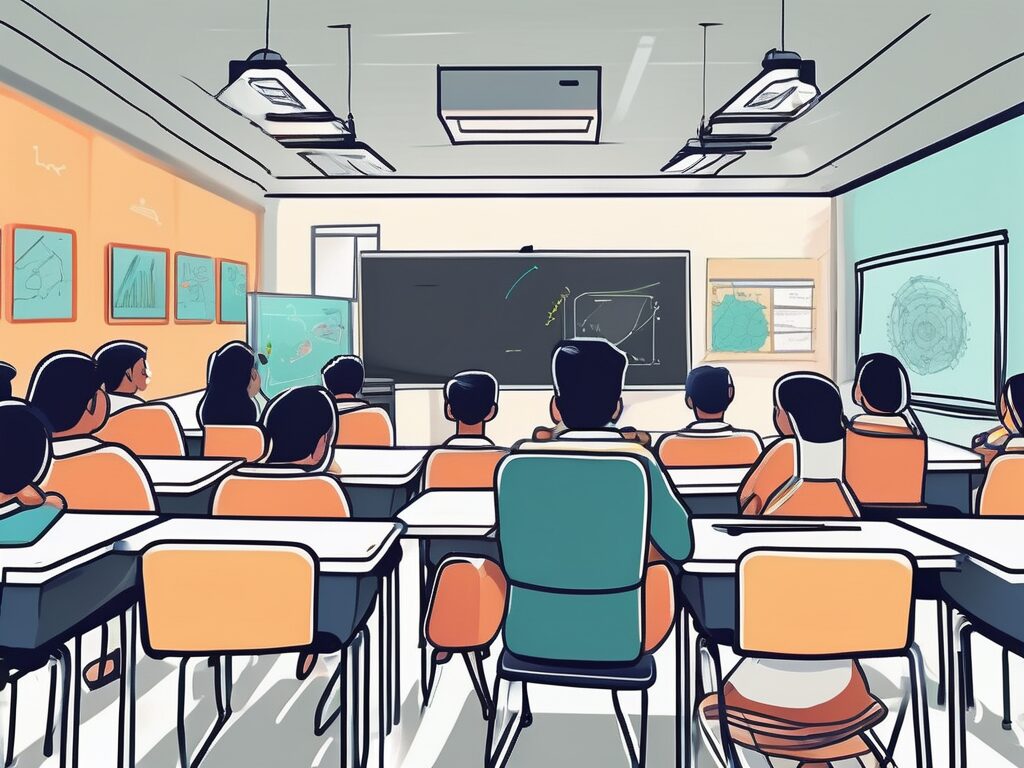In the vast and diverse archipelago of Indonesia, educators are constantly seeking innovative ways to engage their students. With over 50 million students and 3 million teachers, the country’s education system faces unique challenges and opportunities. This article will delve into the various techniques being employed to boost student engagement in Indonesia, from traditional methods to cutting-edge digital solutions.
Traditional Classroom Engagement Techniques
Despite the rapid technological advancements, traditional classroom engagement techniques still hold a significant place in Indonesian education. These methods, which have stood the test of time, continue to be effective in fostering a conducive learning environment.
Interactive Teaching
Interactive teaching, where teachers actively involve students in the learning process, is a common technique in Indonesian classrooms. This method, similar to the Socratic method of questioning, encourages students to think critically and express their thoughts. Teachers pose questions, facilitate discussions, and create activities that require students to apply what they’ve learned.
For instance, in a history lesson about Indonesia’s struggle for independence, instead of merely delivering a lecture, the teacher might organise a role-play activity. This not only makes the lesson more engaging but also helps students better understand and remember the subject matter.
Peer Learning
Peer learning is another traditional technique widely used in Indonesia. This method encourages students to learn from each other, fostering a sense of camaraderie and mutual respect. It’s akin to the old adage, “two heads are better than one.”
In a typical peer learning scenario, students might be grouped together to work on a project or solve a problem. This collaborative approach not only enhances their understanding of the subject but also develops their teamwork and communication skills.
Modern Engagement Techniques
While traditional methods continue to be effective, Indonesian educators are also embracing modern engagement techniques. These methods leverage technology to create a more interactive and personalised learning experience.
EdTech Solutions
EdTech, or educational technology, is revolutionising the way students learn in Indonesia. From interactive whiteboards to learning management systems, these digital tools are making learning more engaging and accessible.
For example, platforms like Ruangguru and Quipper provide online learning resources and virtual classrooms, allowing students to learn at their own pace. These platforms are to traditional classrooms what e-books are to physical books – a digital evolution that offers convenience and flexibility.
Game-Based Learning
Game-based learning is another modern technique gaining traction in Indonesia. This method uses games to teach students various concepts, making learning fun and engaging. It’s like turning the classroom into a playground, where learning becomes a by-product of play.
For instance, a teacher might use a game to teach students about the solar system. The game could involve students navigating through space, encountering different planets and learning about their characteristics along the way. This immersive experience can make learning more enjoyable and memorable for students.
Challenges and Opportunities
While these engagement techniques have shown promise, they are not without challenges. Limited resources, lack of training, and the digital divide are some of the hurdles that need to be overcome. However, these challenges also present opportunities for innovation and growth.
Overcoming Challenges
Overcoming these challenges requires concerted efforts from all stakeholders. Government initiatives, such as the “Smart Indonesia” programme, aim to improve internet connectivity and digital literacy across the country. Similarly, teacher training programmes are being implemented to equip educators with the skills to effectively use these engagement techniques.
Moreover, partnerships between schools, EdTech companies, and non-profit organisations can help bridge the resource gap. For instance, an EdTech company might provide schools with free access to their platform, while a non-profit might fund the purchase of necessary hardware.
Seizing Opportunities
The challenges faced by the Indonesian education system also present opportunities for innovation. For instance, the need for remote learning solutions during the COVID-19 pandemic has spurred the development of new EdTech tools and platforms.
Moreover, the diverse cultural and linguistic landscape of Indonesia offers a unique opportunity for the development of localised learning resources. These resources, tailored to the specific needs and contexts of different regions, can make learning more relevant and engaging for students.
In conclusion, student engagement is a multifaceted issue that requires a multifaceted approach. By combining traditional and modern techniques, and by overcoming challenges and seizing opportunities, Indonesia is forging a path towards a more engaging and effective education system.
Enhance Your Teaching Career with IPGCE
As you strive to engage students across Indonesia’s diverse educational landscape, consider elevating your qualifications with the International Postgraduate Certificate in Education (iPGCE). This Level 7 programme is designed to support educators like you in achieving Qualified Teacher Status, enhancing your professional development, and expanding your career opportunities. With the iPGCE, you can join the ranks of teachers who have seen a 50% increase in interview callbacks, a 45% boost in promotion rates, and a significant expansion of their professional networks. Embrace the flexibility of online study and connect with a global community of educators. Don’t let inadequate credentials or isolation limit your potential. Join the UK’s #1 Teacher Training Course today and become a more adaptable, well-connected, and successful educator.

